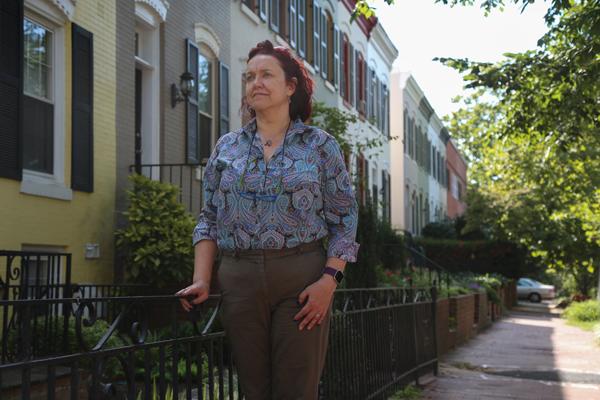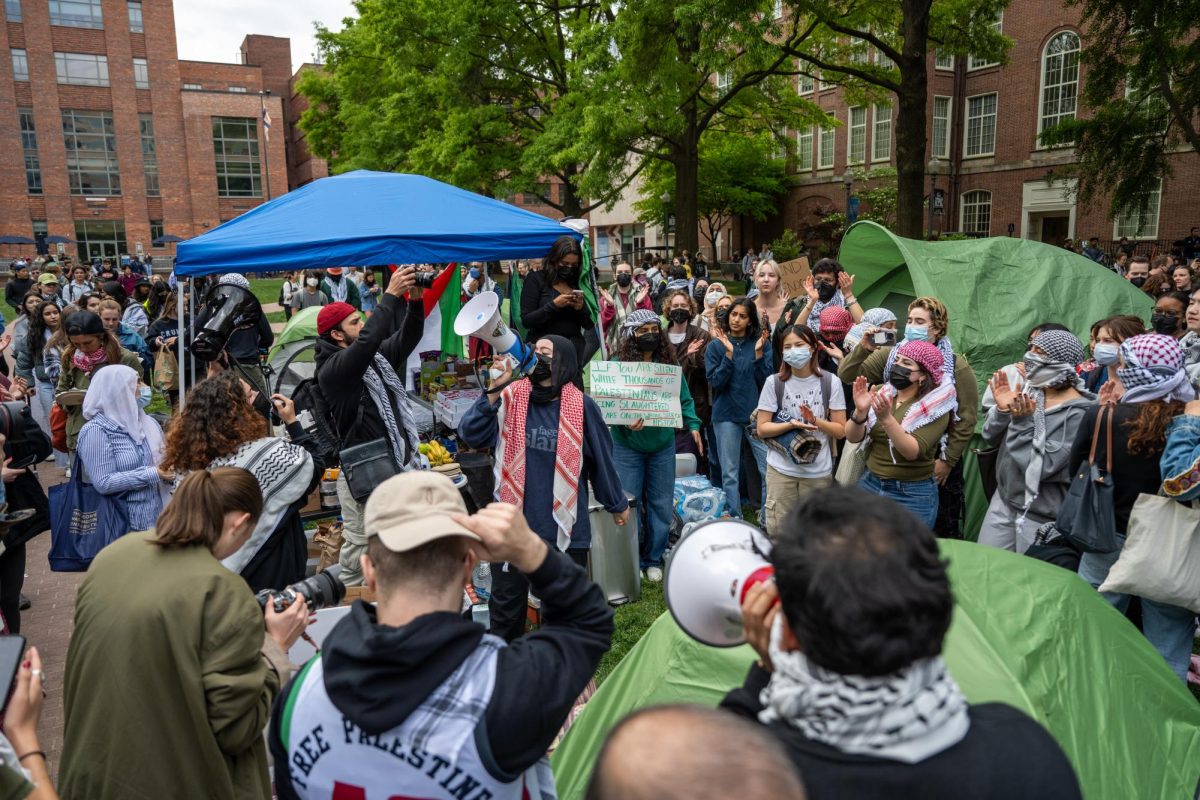When Foggy Bottom Association President Marina Streznewski was kept up by a noisy student party off campus one night, she thought, “These people don’t know how lucky they are to have houses.”
After that night, Streznewski was inspired to propose a plan for the neighborhood: House homeless people in townhouses in Foggy Bottom through government programs. She said taking advantage of D.C. housing programs would not just help get people off the streets but could limit the amount of noise complaints caused by off-campus parties.
The plan for the neighborhood uses an already-existing D.C. program that utilizes federal and local funds to provide permanent supportive housing to homeless people in the Foggy Bottom area. Streznewski is in the “very early stages” of talking to local landlords about opening their doors to homeless people, instead of accepting students as tenants, she said.
“Do you want students who are going to drink and party, because they are, or do you want working folks who are here to help [homeless] stabilize their situation?” Streznewski said, recounting the argument she makes to landlords near campus.
Landlords who want to use their properties for permanent supportive housing can sign up with the city to be a part of the program. Streznewski said she has talked to several landowners in Foggy Bottom, but none have made a decision on whether or not to participate.
Property values wouldn’t be negatively affected and the socioeconomic environment will improve once homeless people are housed, which are positives for landlords, Streznewski added.
“When you bring people here who are impoverished to live in neighborhoods that are more affluent, they tend to go up, but the people that already live there do not go down,” she said.
Student leaders said they are worried that the program could take away prime affordable off-campus housing options. Student Association Executive Vice President Thomas Falcigno said that he and SA President Erika Feinman met with Streznewski about neighbors’ concerns with students living off campus, including her proposal to rent homes to the homeless.
Falcigno said that he and Feinman have had firsthand experience with competing with students for off-campus housing.
“I think my concern, frankly, for seniors is, is there enough room off campus for people to actually find space to live off campus if they want to stay in the immediate area?” Falcigno said.
Dixie Woodard, a Foggy Bottom landlord, said she doesn’t think landlords in the neighborhood, including herself, would find subsidies for permanent supportive housing for homeless comparable to the money they make from renting to young professionals and students.
Places that might end up subsidizing their spaces for homeless people would have trouble maintaining the neighborhood’s appeal, Woodard said.
“For one thing in Foggy Bottom I don’t know if it would be very easy to start a program for housing the homeless because nothing can be changed here,” she said.
Dora Taylor, a public information officer for the Department of Human Services, said homeless families or individuals with impairing illnesses, disabilities or behavioral health issues are likely to receive permanent supportive housing. The department assesses the individual or family, asking questions about mental health, stability, employment and past or present associations, she said.
Individuals can qualify for permanent supportive housing in D.C. if they have been continuously homeless for at least a year or have had at least four episodes of homelessness in the past three years, according to the D.C. Department of Human Services.
Taylor said landlords could be reluctant to take in people who might have past evictions or credit issues.
“Families who are experiencing the homeless experience or living in poverty — some of them have past evictions or credit issues so that would naturally deter a landlord,” she said.
Former Foggy Bottom Grocery owner Kris Hart said he often invites a few homeless people that he got to know from his late-night walk home from work to sleep on his couch, use his laundry machines, make food with him and stay up late talking.
Although Hart supports helping homeless people in the Foggy Bottom area, he said landlords should not be forced to stop renting their houses to students or other people in the area.
“I am very pro-supporting the homeless,” Hart said. “However, people should be able to rent their houses to individuals, to students or families or senior citizens.”







